Proactive and Preventative Strategies for Use with Patients with Behavioral Health Needs
-
You must log in to register
- Non-member - $60
- Member - $35
- Student - $15
Children, teens, and adults with behavioral health needs often present to the hospital not only when experiencing psychiatric crises, but also to address medical needs both in inpatient and outpatient hospital-based settings. To be able to best provide care to those with behavioral health needs, we must be able to identify and use strategies that may reduce or prevent the likelihood that behaviors will interfere with care. Further, we need to be prepared to quickly problem solve "in the moment" crisis situations in a way to improve functioning, maintain patient and staff safety, and reduce continued crisis situations. This webinar will review common reasons why children with behavioral health needs might engage in behaviors in hospital settings and begin to lay the foundation for why being proactive in providing care using a patient-centered, multi-disciplinary approach may provide an ideal state for improving outcomes. A basic needs assessment will be presented, and proactive and "in the moment" strategies will be discussed as a way to assist attendees with gaining additional knowledge and skills they can use to be more effective at improving patient functioning, maintaining safety, and reducing interfering patient behaviors.
Participants will be able to:
-Discuss reasons patients may exhibit behavior problems in health care settings
-Understand the difference between being proactive versus being reactive, and why proactive strategies are more effective at reducing behavior problems
-Identify basic proactive strategies that can be used to address behavioral issues exhibited by patients in hospital settings
-Build a "back pocket" to turn to when a behavioral crisis occurs and identify which "in the moment" strategies are more ideal to ensure patient and staff safety while reducing the likelihood that behavior problems will occur again
-Discuss the ideal state for addressing behavior problems in hospital settings to improve patient and staff safety
Suggested Domain: Intervention
This webinar is part of our Established Professionals programming.

Jill Fodstad, PhD, HSPP, BCBA-D
Dr. Jill Fodstad is an Associate Professor of Clinical Psychology in Clinical Psychiatry at Indiana University School of Medicine in Indianapolis, Indiana where she is the Clinical Director of the Simon Skjodt Child and Adolescent Behavioral Health Unit. She is a licensed clinical psychologist and doctoral-level board certified behavior analyst (BCBA-D) with over 15 year experience in providing diagnostic services and psychological care to children with severe behavioral health and psychiatric needs in a variety of settings including state hospitals, outpatient psychology clinics, inpatient psychiatric units, residential group homes, intensive Applied Behavior Analysis programs, and hospitals. Dr. Fodstad's clinical practice focuses on the evaluation, diagnosis, and treatment of Autism Spectrum Disorder and severe behavior disorders in individuals with developmental disabilities across the lifespan. Her research is focused on the development of appropriate models of assessment and treatment of early forms of self-injurious behavior, behavioral assessment and treatment techniques for psychiatric disorders in children with developmental disabilities, and identifying strategies to increase the fidelity of behavioral intervention implementation by caregivers. She provides supervision and training to medical students, psychiatry residents and fellows, psychology graduate students, as well as other types of learners, and enjoys teaching and training others to feel confident in their skills to provide evidenced-based and compassionate patient/family-centered care.
